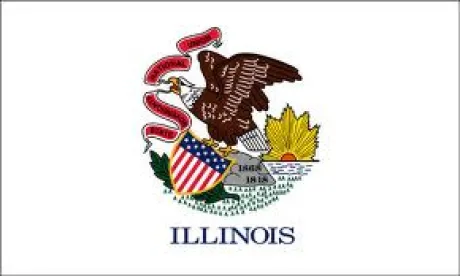A new bill sitting on Illinois Governor J.B. Pritzker’s desk could change the calculus for defendants in personal injury and wrongful death lawsuits by entitling plaintiffs to prejudgment interest both in future lawsuits and in lawsuits that have already been filed. The bill could make plaintiffs’ verdicts more costly for defendants while also inflating settlement amounts.
HB3360 passed both houses on January 13 and went to the governor on February 4 for signature. If the bill becomes law, it will amend the Code of Civil Procedure (735 ILCS 5/2-1303) to provide plaintiffs with prejudgment interest on all damages awarded in personal injury and wrongful death cases in Illinois.[1] Previously, plaintiffs were entitled only to postjudgment interest in these cases. The bill entitles plaintiffs to collect prejudgment interest in negligence and strict liability, as well as in cases of willful or wanton or intentional misconduct.
Three Important Provisions
The bill has three provisions that potential or existing defendants should be aware of.
First, prejudgment interest starts to accrue after the plaintiff is allegedly injured and the defendant has notice of the injury—not when the plaintiff files suit. For incidents occurring before the bill becomes law, interest will start to accrue on the bill’s effective date.
Second, the bill sets interest at 9 percent annually. While that rate mirrors the Illinois rate for postjudgment interest, the only prejudgment interest available before the bill was set at 5 percent and did not apply to personal injury or wrongful death cases. The bill also gives the trial judge discretion to divert a portion of the awarded interest to any agency or department of the state but not to reduce the overall award. Defendants will pay 9 percent no matter what—it will just be up to the court to determine how it is distributed.
Finally, the bill provides that prejudgment interest accrues on all damages—not just economic damages. This means that plaintiffs would earn interest even on future lost wages and medical expenses. Pain and suffering damages would also accrue 9 percent interest.
Polarizing the Public While Awaiting Governor’s Signature
Given its far-reaching and polarizing effects, the bill has both supporters and detractors. Supporters—like the Illinois Trial Lawyers Association—tout the bill’s ability to protect the injured and expedite resolution of cases by encouraging defendants to settle early or litigate fast. Those opposed to the bill—including the Illinois Defense Counsel—point out that the bill will increase insurance costs by inflating settlements and damages awards and will unfairly punish defendants for any litigation delays, even those caused by plaintiffs. Defendants may unfairly feel the need to rush litigation, while plaintiffs could be incentivized to give immediate notice of the injury but then wait to file suit until the statute of limitations has nearly expired. The timing of the bill seems particularly unfair to defendants since civil jury trials across the state have been significantly delayed due to COVID-19.
After passing both chambers with only Democratic support, the bill now sits on Governor Pritzker’s desk. He has 60 days from February 4 to sign or veto it, and, if he does nothing, the bill will automatically become law on April 5.
Conclusion
In at least 30 other states, plaintiffs can already collect prejudgment interest for certain tort actions, but—unlike Illinois under HB3360—most of those states have a lower interest rate, give the court discretion to limit the award, and/or condition the availability of the interest on offers of settlement made before trial. In California, for example, a plaintiff can collect prejudgment interest only if (1) the defendant rejects a settlement offer and (2) the jury award exceeds that rejected offer.
It remains to be seen whether HB3360 will actually expedite the resolution of personal injury and wrongful death cases in Illinois. But companies facing these suits should pay close attention to when they learn about an injury, what damages the plaintiff claims, and how the added 9 percent affects their risk exposure.
[1] The bill exempts local public entity defendants from prejudgment interest.



 />i
/>i

